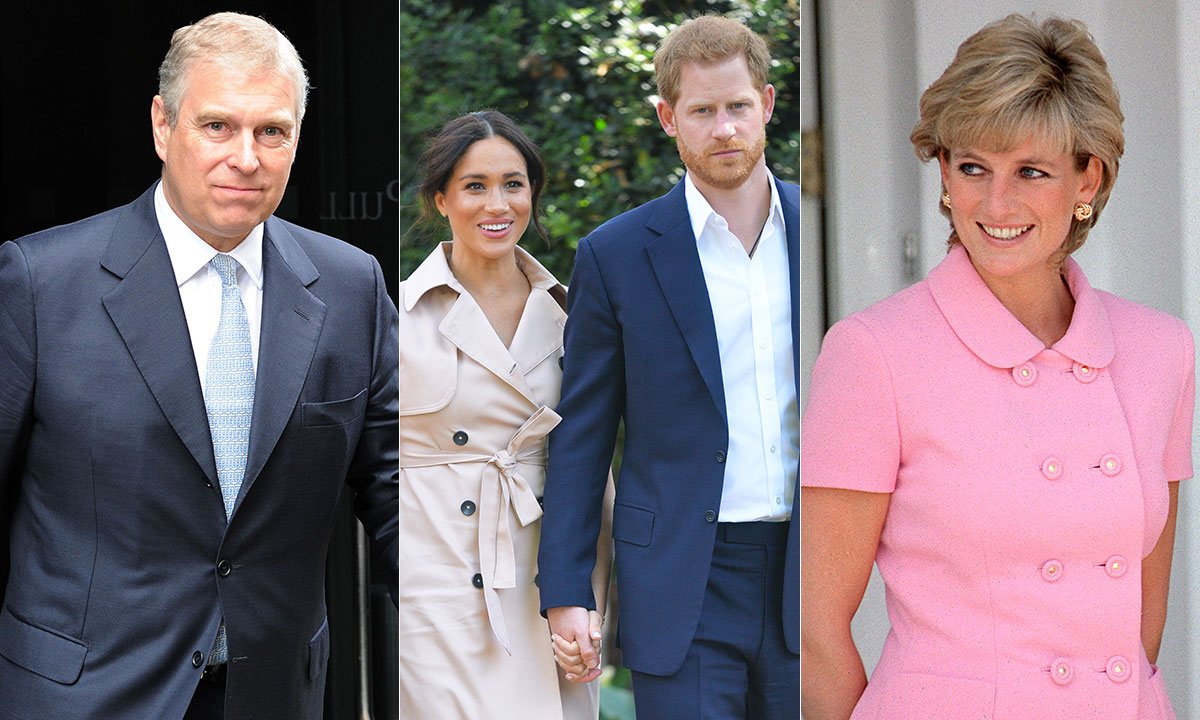In recent years we have read statements of resignation by royals who have found life apart from the walls of the palace. This is no news as it dates back to the 1,000-year history of the monarchy.
The most recent would be Prince Harry and Meghan Markle whose decisions to step back as senior members of the royal family was made known to the public early this year. Amidst the shock and rumble the Sussex have been on a journey of carving a niche for themselves and being supportive of each other in their new found path.
Harry’s decision could be linked to the loss of his mother who in 1993, after her split from Prince Charles, made a tearful plea for privacy as she announced a year away from the spotlight. A number of staff that she regarded as family had recently resigned and her best friend Lucia Flecha de Lima had moved away to Washington.
Princess Diana came back more radiant than ever in November 1994, dazzling in a backless dress at a fundraising gala at the Palace of Versailles in Paris that raised £500,000. Sadly, her plans to become a roving global humanitarian were cut short by her death in 1997.
For love sake, Prince Edward soon after his father’s death King George V in 1936 shook his family’s moral standard with his desire to marry Wallis Simpson, an American socialite who was at the time on her second divorce.
Taking advice from Prime Minister Stanley Baldwin the Royal abdicated and went into exile with Wallis, settling in France as the ‘Duke and Duchess of Windsor’.
Edward remained devoted to Wallis, buying her a King’s ransom worth of jewels to make up for the crown that would never be hers.
Johanna Schutz, who served as their secretary for eight years, described their union up till his final years, the former King made sure to walk his wife to the front door when she went out. He would tell her how much he would miss her and always greeted her on her return with the words: ‘Darling, I’m so happy to have you back.’
“She had this hypnotic charm. She wasn’t beautiful, but she had the most mesmerising blue eyes. The Duchess was brilliant,” added Johanna. “Everyone always said that the Duchess infatuated the Duke, but why would he have stayed with her if she wasn’t exceptional?”
Princess Patricia of Connaught spent her life up untill her early 30s in favour of supporting numerous charity organisations, putting aside marriage and her personal desires.
When her father Prince Arthur, Duke of Connaught, was sent to Canada in 1911 as Governor General she moved with him, coming into contact with his aide-de-camp Alexander Ramsay, a naval commander who later served with distinction in World War I. Their love was initially disapproved because of his lack of royal lineage but she threw herself into life in her new home, giving skating parties, riding in the Rocky Mountains (astride not side saddle) and visiting war veterans. She was also thought to be a supporter of women’s political participation, yet stayed true to the son of the 13th Earl of Dalhousie through the years and King George eventually approved the marriage, giving her permission to relinquish her title.
They got married at Westminster Abbey and the couple’s happy 53-year marriage produced one son.
The Duchess of Kent in 2002, stepped out of the walls of the palace to pursue her vocation to teach music to inner-city children in Wansbeck Primary School in Kingston upon Hull, Yorkshire.
At school she was known as Mrs Kent, the kindly teacher who would go the extra mile to help her pupils flourish.
The Duchess while being interviewed by Alan Titchmarsh, said: “I began to notice the power of music as a stimulant to these children to give them confidence and self-belief. Some of the housing estates they came from had sort of Berlin Walls around them. Through music one or two of them can climb the Berlin Wall and get out and excel in life. Some of the children I taught haven’t necessarily become musicians, but the confidence it has given them, some have joined the Army, some gone to university, which they might not have done otherwise.”
While Prince Andrew has recently resigned from Royal duties over his alleged relationship with Jeffrey Epstein, Prince Frederick stepped down for similar reasons too. Mary Clarke who was his mistress testified in Parliament that she had sold army commissions with his knowledge in 1809 and two years later it emerged that Mary had received payments from his chief accuser and the Duke of York was duly reinstated as Commander-in-Chief after his initial resignation as head of the army.
King Albert of Belgium, initially resigned with ill health being his reasons but a paternity case brought by artist Delphine Boël, whom a court later confirmed was his daughter from an extra-marital affair was in the at the time while King Juan Carlos of Spain, Queen Beatrix of the Netherlands and Emperor Akihito of Japan all stepping down in favour of their sons.











